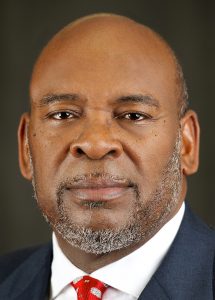Bishop L. Jonathan Holston, resident bishop of the South Carolina Conference of The United Methodist Church, released this statement regarding the 60th anniversary of the March on Washington:
 Sixty years ago today, the Rev. Dr. Martin Luther King Jr. spoke passionately from the steps of the Lincoln Memorial about transforming “the jangling discords of our nation into a beautiful symphony of brotherhood.”
Sixty years ago today, the Rev. Dr. Martin Luther King Jr. spoke passionately from the steps of the Lincoln Memorial about transforming “the jangling discords of our nation into a beautiful symphony of brotherhood.”
These breathtakingly aspirational words are often overlooked in Dr. King’s “I Have A Dream” speech before more than 250,000 people during that initial March on Washington on August 28, 1963. They are sandwiched between Dr. King’s well-known litany of dreams, and his hope for “the day when all of God’s children will be able to sing with a new meaning, ‘My country, ’tis of thee, sweet land of liberty…’”
“Symphony of brotherhood” – a dream in itself, driven by Dr. King’s unyielding faith that “we will be able to hew out of the mountain of despair a stone of hope.”
That dream – that desire for a dream – is still with us today. To be sure, we have made progress over these 60 years; but, all too often, we idle, we stall, we slide back. Just this weekend, we saw one of those backslides, when one man’s hatred for black people resulted in the shooting deaths of three people in Jacksonville, Florida.
We grieve these – the latest in an ever-growing, horrific line of victims of gun violence – and we mourn the members of our own community who have been victims of hatred over the years. We pray for the family, friends and loved ones of all whose lives have been lost due to hatred and violence, and we ask God to surround those affected with comfort, healing and peace.
Twelve years before Dr. King shared his expansive dream, the poet Langston Hughes asked, “What happens to a dream deferred? Does it dry up like a raisin in the sun?” A dream deferred, yes, but that desire for a dream lives on.
Our faith that “joy comes with the morning” sustains us on the path to the fulfillment of Dr. King’s dream. Today, we must not only renew this message of hope, but act on it – each in our own hearts and in our own families, and together in our own communities.
So, how do we act on this?
First, we open our eyes to the realities of injustice in the world, acknowledging that we have a personal and collective responsibility to put our faith into action.
Second, we recognize that the experiences of others may very well be different from your own, and that we can learn so much by talking and listening to one another rather than speaking in sweeping generalities. If we are willing and open, we will grow.
As we reflect on this broadening perspective, the opportunities for action will come into focus. If you want to make a difference, you can’t do it from the sidelines.
Here in the South Carolina Conference, we have developed resources for those churches whose members want to have honest conversation about the pain of discrimination and racism and how we move forward together. Our Response to Racism is designed to help tear down the walls that divide us and build bridges of reconciliation between all of God’s people.
The more we are willing to learn, share, listen and grow, the more we reflect the light of God’s love into a hurting world.
As we reflect today on the six decades that have passed since the inaugural March on Washington, we know, like Dr. King knew, that it is our faith that enables us to breathe and believe, hewing hope amid seeming despair. Please join me in praying that love will be vigilant and truth will be bold.
Grace and peace,
L. Jonathan Holston
Resident Bishop
South Carolina Conference of The United Methodist Church
